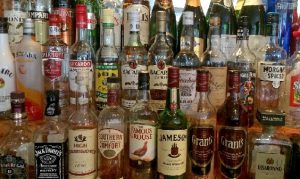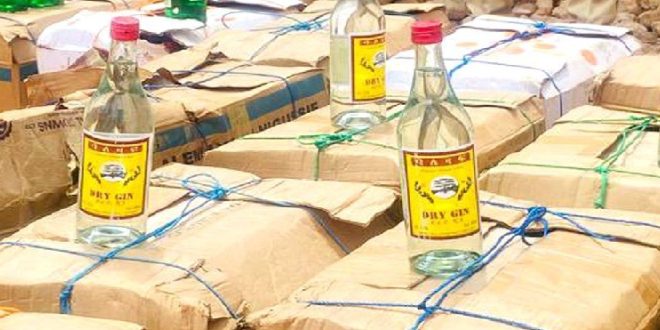22-10-2024
MOGADISHU: Alcohol smuggler Guled Diriye is exhausted.
He has just returned from his trip transporting contraband from the Ethiopian border.
The 29-year-old slumps in his chair inside a colonial-style villa battered by years of fighting in Somalia’s capital, Mogadishu, a city once known as the Pearl of the Indian Ocean.
 His sandals are covered in a potent orange dust, the residue from the desert.
His sandals are covered in a potent orange dust, the residue from the desert.
Diriye’s dark eyes droop. The bags underneath speak of sleepless nights, the hours of tension traversing the dangerous roads and negotiating checkpoints with armed men.
There is also the haunting memory of a fellow smuggler who was shot dead.
“In this country, everyone is struggling and looking for a way out. And I found my way by making regular trips by road from the Ethiopian border to Mogadishu,” he says, explaining that smuggling was a means to support his family in a tough economic climate.
The use and distribution of alcohol is illegal. Somalia’s laws must comply with Sharia (Islamic law), which forbids alcohol, but it has not stopped a growing demand, particularly among young people in many parts of the country.
Diriye’s neighbor Abshir, knowing he had fallen on hard times as a minibus-taxi driver, introduced him to the precarious world of alcohol smuggling.
Rickshaws began to take over the city, pushing minibus drivers out of business.
Both were childhood friends who had sheltered together in the same camp in 2009 during the height of the insurgency in Mogadishu – he was someone he could trust.
“I began picking up boxes of alcohol at designated drop points in Mogadishu on [his] behalf and maneuvering through the city and offloading them at designated locations. I didn’t realize it at first but this was my introduction into smuggling.”
 His involvement snowballed and Diriye soon found himself navigating from the porous frontier with Ethiopia through Somalia’s rural hinterlands.
His involvement snowballed and Diriye soon found himself navigating from the porous frontier with Ethiopia through Somalia’s rural hinterlands.
He understands that he is breaking the law, but says the poverty that he finds himself in overrides that.
The smuggling journey begins in Somali border towns such as Abudwak, Balanbale, Feerfeer and Galdogob.
“Alcohol mostly originates in [Ethiopia’s capital] Addis Ababa and makes it to the city of Jigjiga, in the Ogaden region,” Diriye says.
The Ogaden or, as it is officially known in Ethiopia, the Somali region, shares a 1,600km (990-mile) border with Somalia. People on both sides share ethnic, cultural, linguistic and religious ties.
Once the alcohol is loaded, it is moved across the plains of the Somali region, and then smuggled across the border into Somalia.
The border town of Galdogob is a major hub for trade and travel and has been hit hard by the flow of alcohol being smuggled from Ethiopia.
Tribal elders have raised concerns over alcohol-related violence.
“Alcohol causes so many evils [such as shootings],” says Sheikh Abdalla Mohamed Ali, the chairman of the local tribal council in the town.
“(It) has been seized and destroyed on multiple occasions but it’s like living next to a factory. It keeps putting out more and more, no matter what we do.”
“Our town will always be in the midst of danger” but for the smugglers the goal is to get the alcohol to the capital.
“I drive a truck that transports vegetables, potatoes and other food products. When the truck is loaded up it’s filled with whatever I’m transporting, but I make the most money from the alcohol on board,” Diriye says. (Int’l News Desk)
 Pressmediaofindia
Pressmediaofindia




